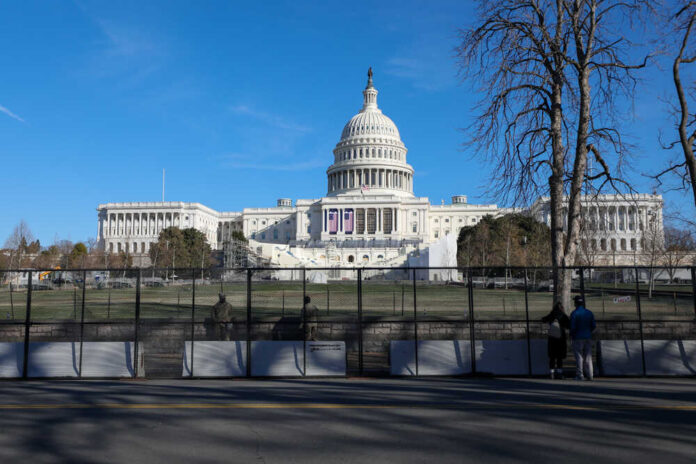
Less than two months ago, Texas resident Daniel Goodywn appeared on former Fox News host Tucker Carlson’s show after pleading guilty to entering the U.S. Capitol on Jan. 6, 2021. On the network, Goodywn promoted a website showing supporters where they could donate money to him and other protesters, whom the site referred to as political prisoners.
To prevent “dissidents” from directly profiting through major protesting events, the Department of Justice (DOJ) is now working towards getting Goodwyn to forfeit $25,000 of the funds he has raised.
Jan. 6 Protesters Raked In Thousands Of Donation Dollars, DOJ Is Now Coming For Their Funds https://t.co/dNVnTKu9aW #OAN
— One America News (@OANN) May 28, 2023
According to court documents obtained by the Associated Press, in more than 1,000 criminal cases dating back to Jan. 6, 2021, prosecutors are seeking judges to impose fines and prison sentences to make up for donations from supporters of the Jan. 6 protesters.
Several defendants have established online fundraising campaigns to raise money for their legal fees, and prosecutors have admitted that such an act is acceptable and legal for them to do so.
Yet, because many of the accused have received government-funded legal representation, the DOJ is questioning where the money is going.
Most fundraising is done through the platform GiveSendGo, which has become a shelter for Jan.6 defendants who cannot use alternative websites.
As they agree to plea bargains and cooperate with prosecutors, the protesters repeatedly insist on their innocence and claim they are no worse than the Black Lives Matter (BLM) protesters, who caused more property damage and violence.
“The vast majority of citations and charges against George Floyd protesters were ultimately dropped, dismissed or otherwise not filed, according to a Guardian analysis of law enforcement records and media reports in a dozen jurisdictions around the nation,” The Guardian reported.
The Jan.6 protesters’ success in receiving donations shows that most Americans support them as patriots and freedom lovers of the U.S. Such a claim has been promoted by former President Donald Trump, who has vowed he would pardon all protesters if re-elected president in 2024.
Markus Maly, a Virginia resident whose sentencing for allegedly harming Capitol police will occur soon, earned over $16,000 through an internet fundraising campaign that referred to him as a “January 6 P.O.W.” and requested donations for his family. Prosecutors are asking for a fine of at least $16,000 because Maly had a public defender and no outstanding legal fees.
“He should not be able to use his own notoriety gained in the commission of his crimes to ‘capitalize’ on his participation in the Capitol breach in this way,” a prosecutor wrote in court papers.
So far, in 2023, prosecutors have reportedly requested nearly $400,000 in fines from 21 protester suspects. Amounts range from $450-71,000. At the same time, more than 30 U.S. Capitol breach defendants have received fines totaling over $120,000 from judges in 2023.
From 2021-2023, judges have imposed fines totaling more than $240,000 on over 100 protester suspects. These judges have also mandated that protesters found guilty must pay the government more than $524,000 in reparations to cancel out the $2.8 million in damages to the Capitol and other costs relating to the Jan.6 protests.
“There’s a segment of the population that is sympathetic toward the plight of these defendants,” William Shipley, an attorney for Nathaniel DeGrave, one of the men facing the courts who was present on Jan. 6, said.
“Until they admit they committed a crime, they’re perfectly entitled to shout from the rooftops that the only reason they’re being held is because of politics,” Shipley asserted. “It’s just First Amendment political speech.”
































